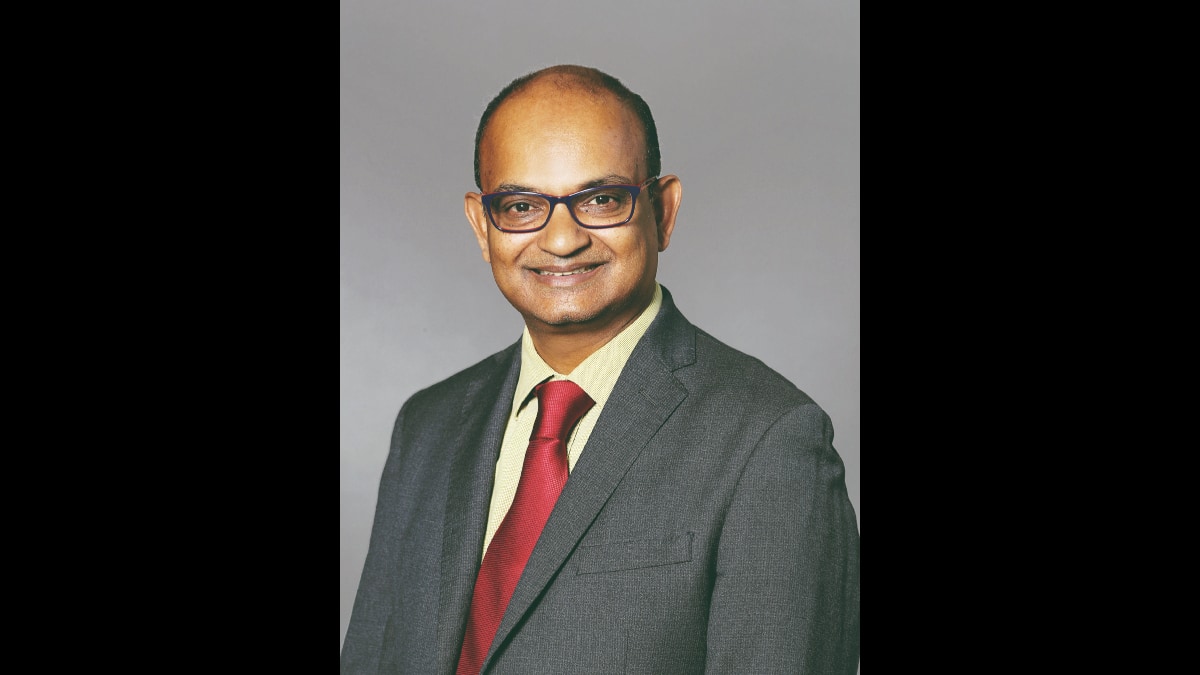Interview: GOPICHAND KATRAGADDA, president, The Institution of Engineering And Technology (IET)
Gopichand Katragadda, former group chief technology officer and innovation head of Tata Sons, and MD of GE India Technology Centre, is the first Indian to become the president of the Institution of Engineering and Technology, one of the world’s oldest and largest global engineering institutions. An expert in artificial intelligence (AI) technology, he says that AI is at a juncture similar to where the internet was in the early 1990s. “Everything around us will be reinvented and engineers can lead the way in delivering a resilient future by embracing innovation and technical advancements and dispelling myths about AI,” he tells Sudhir Chowdhary in a recent interview.
Excerpts:
Given your background in technology, where does your passion lie?
My passion finds roots at the intersection of technology, people, and culture. It’s a dynamic convergence where the limitless potential of technology meets the diverse tapestry of human experiences. Technology is a force that can drive innovation, solve complex problems, and improve the quality of life. With respect to people, I see boundless inspiration. It’s the innovators, the engineers, and the dreamers who shape the course of technological progress.
What does it mean to you to be the first Indian to hold this prestigious position in a global engineering body?
Holding the position of president at the IET is an honour. The IET, through its 150 years of history, has been associated with science and technology heroes including Lord Kelvin, Oliver Heaviside, Joseph Swan, JJ Thomson, Ratan Tata, and Narayana Murthy. By placing the president’s role globally, IET amplifies its intent to inspire, inform and influence the global engineering and technology community to engineer a better world. It also signifies the recognition of India’s growing influence in the field of engineering and technology.
Your views on buzzwords such as Web 3.0, 5G, IoT, and metaverse?
Web 3.0 holds the promise of enhanced security, privacy, and control over personal data but it has to navigate the challenges of scalability and regulatory frameworks. As it matures, it has the potential to redefine how we interact with the digital world.
5G is a game-changer in connectivity, enabling faster data transfer and low latency. IoT is driving the proliferation of connected devices, from smart homes to industrial sensors. The challenge lies in ensuring the security of these interconnected systems and harnessing the data they generate for actionable insights.
The metaverse represents a convergence of virtual and physical worlds, offering immersive digital experiences. While it holds immense potential in gaming, entertainment and remote collaboration, it also faces ethical and privacy concerns. It’s currently in the phase where expectations need to align with practical implementations.
From a hype-cycle standpoint, these technologies may be experiencing a “trough of disillusionment,” but they are not fading away. Instead, they are on a continuum, and AI will play a pivotal role in their maturation. AI will enhance security in Web 3.0, optimise 5G networks, make sense of IoT data, and shape the metaverse’s development.
What are the challenges you see in scaling AI innovations?
Scaling AI innovations presents both exciting opportunities and significant challenges. Ensuring that AI systems have access to diverse, accurate and represent-ative data is essential for their effectiveness. Furthermore, we must navigate the ethical dimensions of AI, including bias mitigation, transparency, and accountability.
Scalability also hinges on access to the right talent. The demand for AI experts and data scientists continues to outstrip supply, making talent acquisition and development a key challenge. As AI innovations scale globally, harmonising regulations and ensuring responsible AI deployment are essential to avoid fragmentation and ensure trust among users and stakeholders.
What can be done to catalyse the Indian technology ecosystem?
India’s potential in the technology ecosystem is immense. To catalyse this potential, we must nurture a culture of innovation, invest in research and development, and support startups and entrepreneurs. Collaboration between academia and industry is crucial. I encourage experienced engineers to register with the IET as chartered engineers to demonstrate their continued commitment to engineering excellence. India has 1.5 million engineers graduating every year – IET will endeavour to impact these engineers’ employability.
